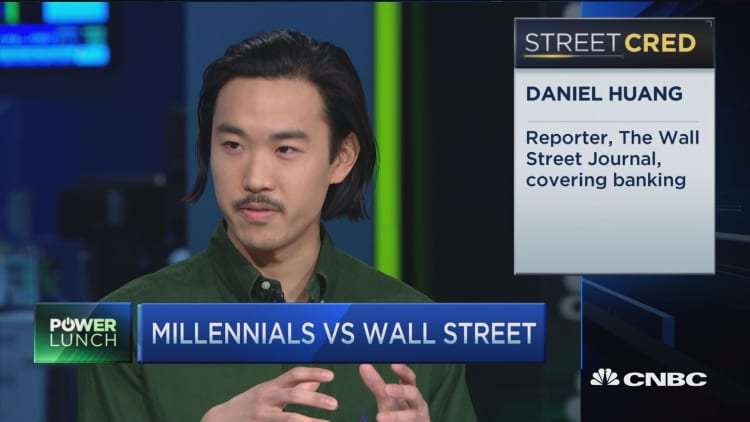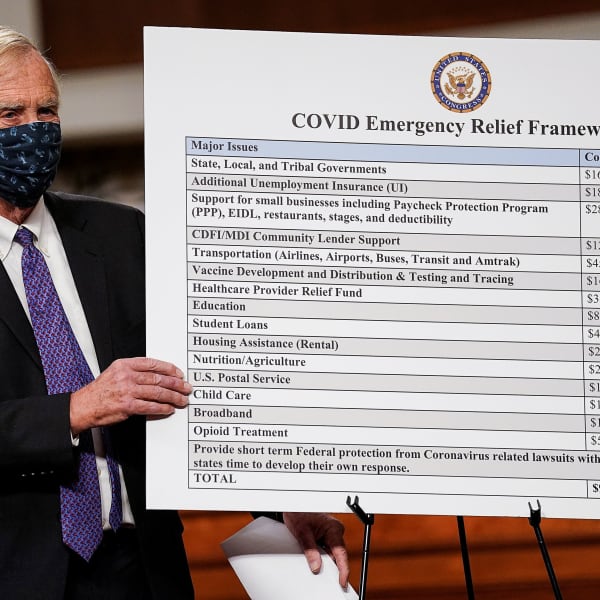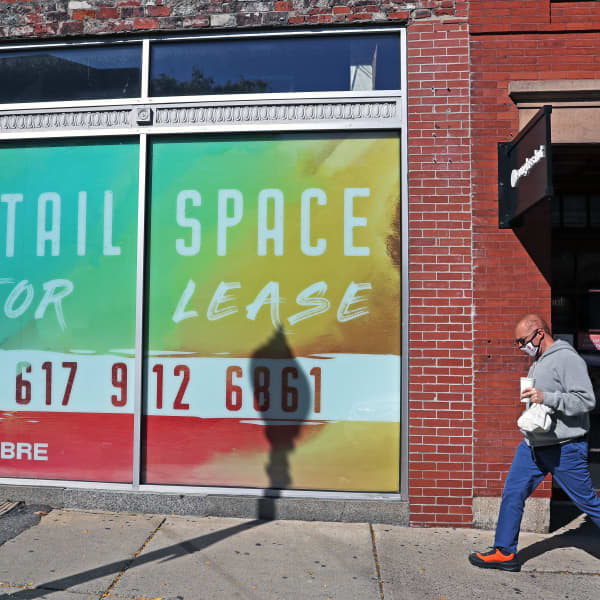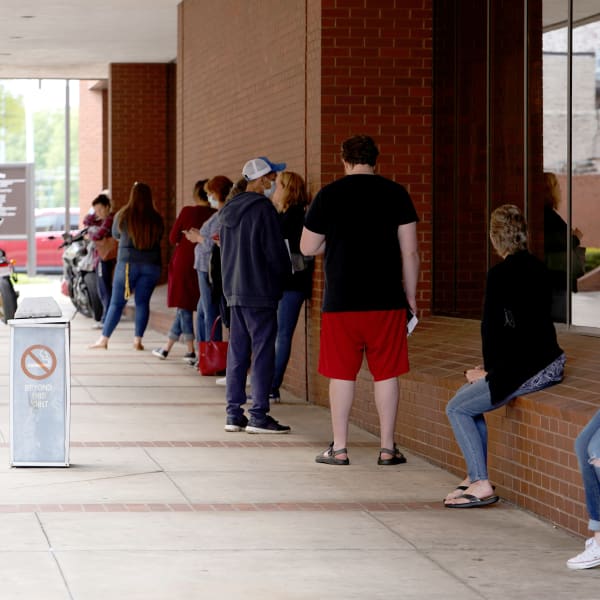Remember when companies offered college graduates a job with a few weeks of vacation, medical and dental insurance and a 401(k) plan? Well, those days are gone.
The millennials streaming into the workforce today, at companies both big and small, are expecting and getting benefits that baby boomers wouldn't even have thought of — or dared ask for. Among them: pet insurance, paid volunteering opportunities and student-loan repayment help, just to name a few.
What's more surprising is that millennials are even willing to take less pay for these benefits — a plus that puts many small businesses having difficulty making payroll each month back in the game to compete for great talent. According to the CNBC/SurveyMonkey Small Business Survey, 7 percent of the 2030 small businesses surveyed cite cost of labor as a critical issue.
The companies offering these unusual perks are going this route for a few reasons. First, they're doing it because the war for millennial talent in a low-unemployment climate makes finding and keeping the best workers that much harder. But perhaps more important, they're realizing that while millennials value good health insurance and paid time off, they want their jobs to address the other aspects of their lives that matter to them, including the crushing debt that many carry from college loans and, of course, their pets.

Some companies are going even further to keep millennials happy and loyal. In 2016, Boxed, the online warehouse club, began paying up to $20,000 for employees' weddings. (A year earlier founder and CEO Chieh Huang began footing the bill for his employees' children to go to college — a generous perk for sure, but one appealing to his older workers.) Since the average age of his employees is right around the time most folks decide to marry, financial help for a wedding is especially appreciated, Huang says, and a great tool for retention. He claims fewer than 10 full-time employees have left Boxed voluntarily since it launched four years ago.
Here's a rundown of some of the most popular perks for millennials these days, and why offering them could give you an edge over your competitors when it comes to landing the best talent.
Paid volunteer time off
Millennials want to work for companies that not only treat them right but also look to make a positive impact in the world. One of the ways that's happening is with paid time off for volunteering. In fact, on Fortune's list of the 100 Best Places to Work For, more than half offer this benefit to employees.
At Salesforce, employees can take up to 56 hours of paid volunteer time off each year. Stryker, the medical technology company, gives employees 40 hours of paid volunteer time each year. Unlike previous generations that viewed their personal, professional and philanthropic lives as separate, millennials tend to integrate all the elements of their lives. The Millennial Impact Report found that more than 75 percent of the millennials it surveyed said they "preferred to perform cause work with groups of fellow employees as opposed to doing independent service projects."
Student loan repayment
There's a reason why more young adults are still living with their parents today than at any other time in recent years: They can't afford to move out. A Pew Research Center analysis of U.S. census data shows that 15 percent of millennials ages 25 to 35 are still living at home, 5 percent higher than the share of Gen Xers who lived with Mom and Dad back in 2000. A big reason for this financial dilemma is that they're carrying record-breaking student loan debt. According to the Department of Education, roughly 44 million college graduates are responsible for paying back a staggering $1.4 trillion in loans. That means millennials are walking into their first job already carrying debt of nearly $28,000.
Some forward-thinking companies are helping ease that burden by offering loan repayment assistance. For instance, Fidelity Investments offers employees that have been with the company for six months or more $2,000 a year toward their student loans, up to $10,000, paid right to their student loan servicer. PriceWaterhouseCoopers and book publisher Penguin Random House are each offering employees $1,200 a year towards their student loan debt. PWC will give a total of $7,200, and Penguin will cover up to $9,000. And though the Society for Human Resource Management says that just 4 percent of companies today offer loan-repayment assistance as a benefit, that number is likely to increase as more debt-laden millennials enter the workforce.
Flexible schedules
The idea of commuting to work five days a week holds scant appeal for millennials. In fact, a, recent FlexJobs survey showed just how different millennials are from their parents when it comes to working in an office. More than a third of those surveyed said they had left a job because a flexible schedule wasn't an option, and a similar percentage said they would take up to a 20 percent cut in pay for a telecommuting option. Further, a report by McKinsey & Company finds that millennials are more likely to accept a job offer from a company that offers flexibility. Dropbox, the file-sharing company, offers unlimited paid time off rather than paid holidays and vacation time, and lets its employees set their own schedules. It's also started something called no-meeting Wednesdays so that employees have the whole day, uninterrupted, to work either at home or in the office.
Pet insurance
If you have any doubt that millennials love their pets, just consider this: 20-somethings now account for 35 percent of all Americans that own one. And in the ongoing race to recruit millennial talent, the companies that make it easier for pet owners to care for their fur babies are likely to win out.
Today about 5,000 companies offer pet insurance as an employee benefit, including Ikea, Hewlett-Packard and Microsoft. The coverage varies from company to company, but most pay a percentage of the premiums that cover the cost of veterinary care, medicines and surgeries. And considering that millennials are more likely to have a pet than a spouse or children, it's an employee benefit that will likely grow in popularity.
Financial wellness counseling
Having their financial house in order is an important skill for millennials, and they're increasingly turning to their employers to get the knowledge they need. In fact, according to the Society for Human Resource Management, financial wellness programs are turning out to be one of the most sought-after employee benefits this year. And with good reason: A recent survey by SHRM showed that 64 percent of millennials are stressed about their finances, more than any other demographic group.
Smart companies are responding to this by offering help beyond just retirement planning. Among the most popular topics: managing student loan debt, day-to-day budgeting and even the role of financial stress on emotional and physical health. For instance, American Express offers "Smart Savings," a financial wellness program that helps employees prevent and cope with financial stress at every stage of their lives. The Home Depot began offering a similar program after noticing that financial worries were becoming an increasingly bigger issue for many of its employees.
— By Susan Caminiti, special to CNBC.com




